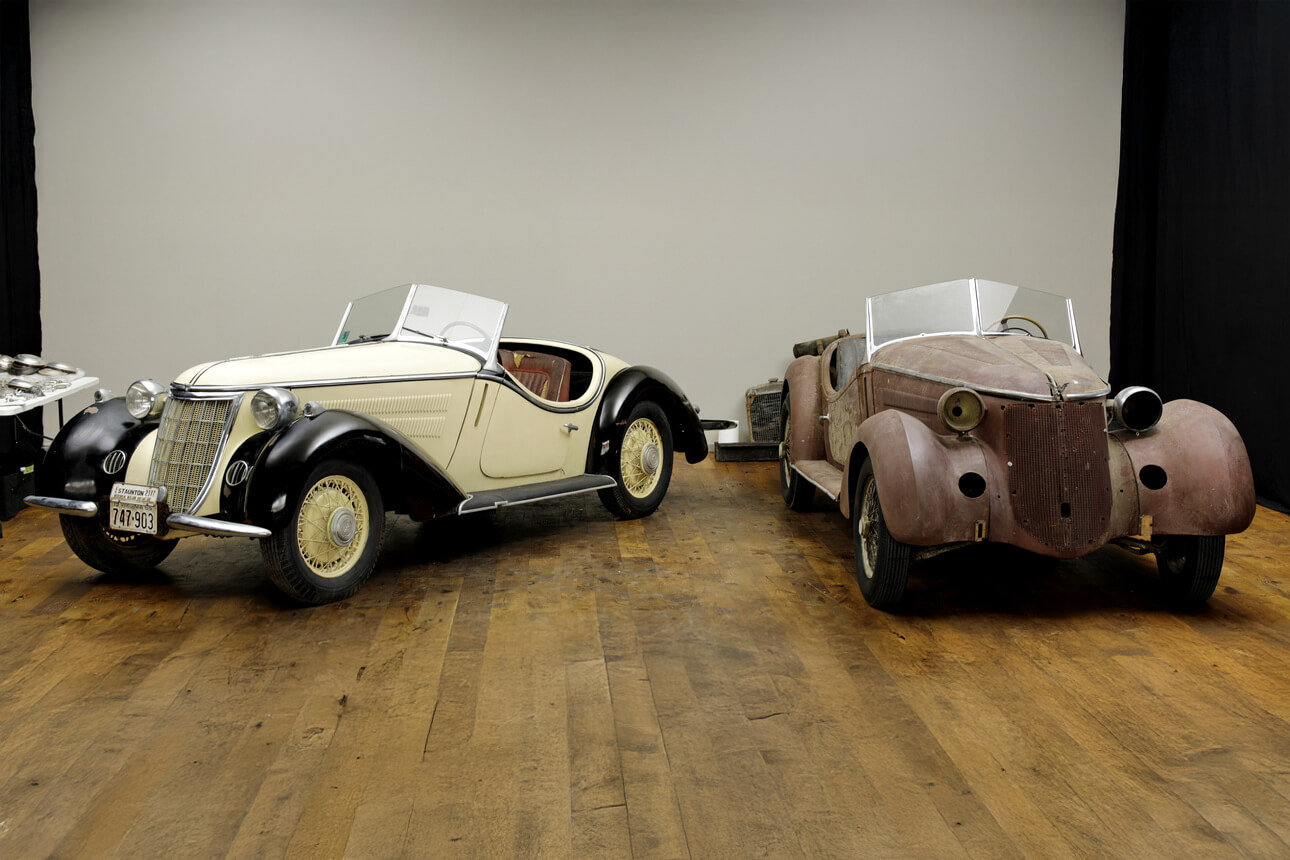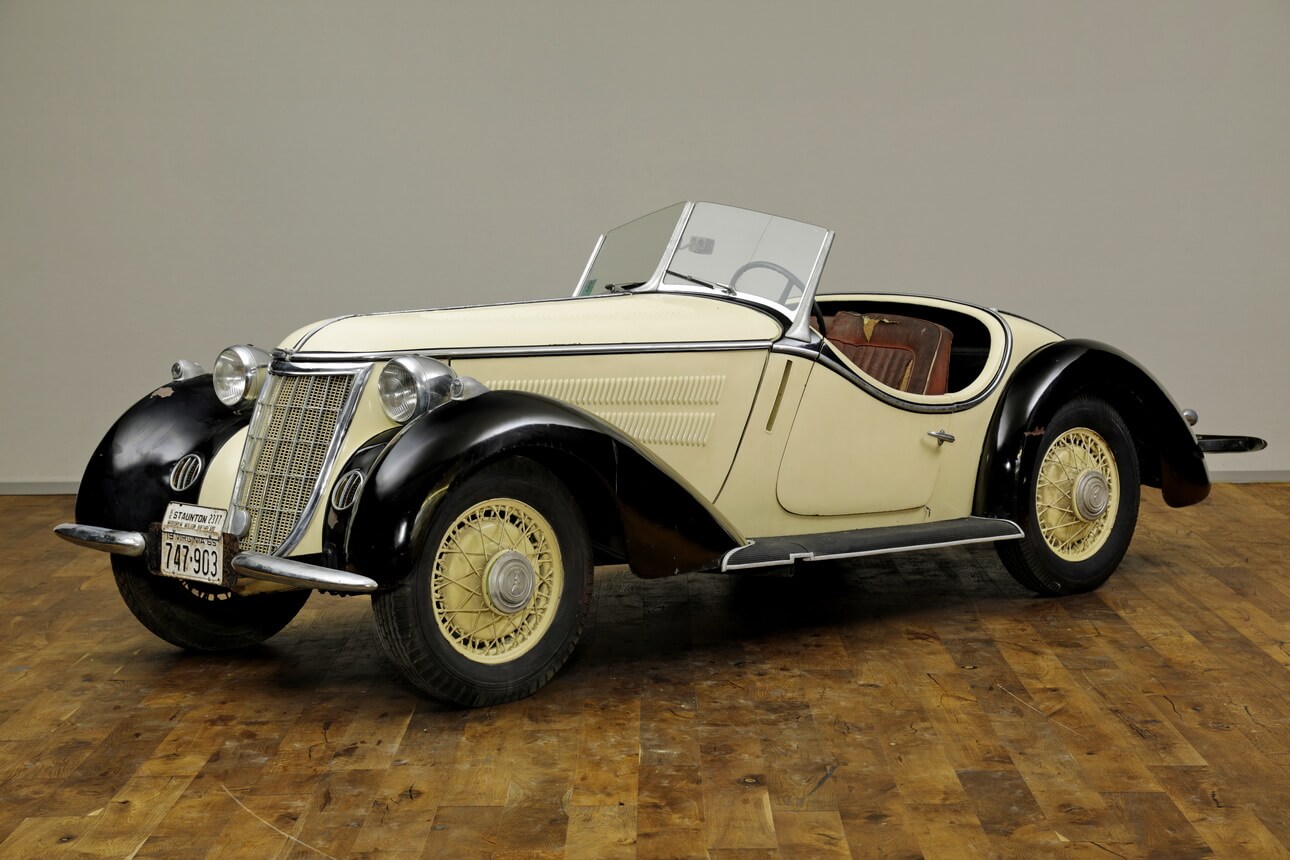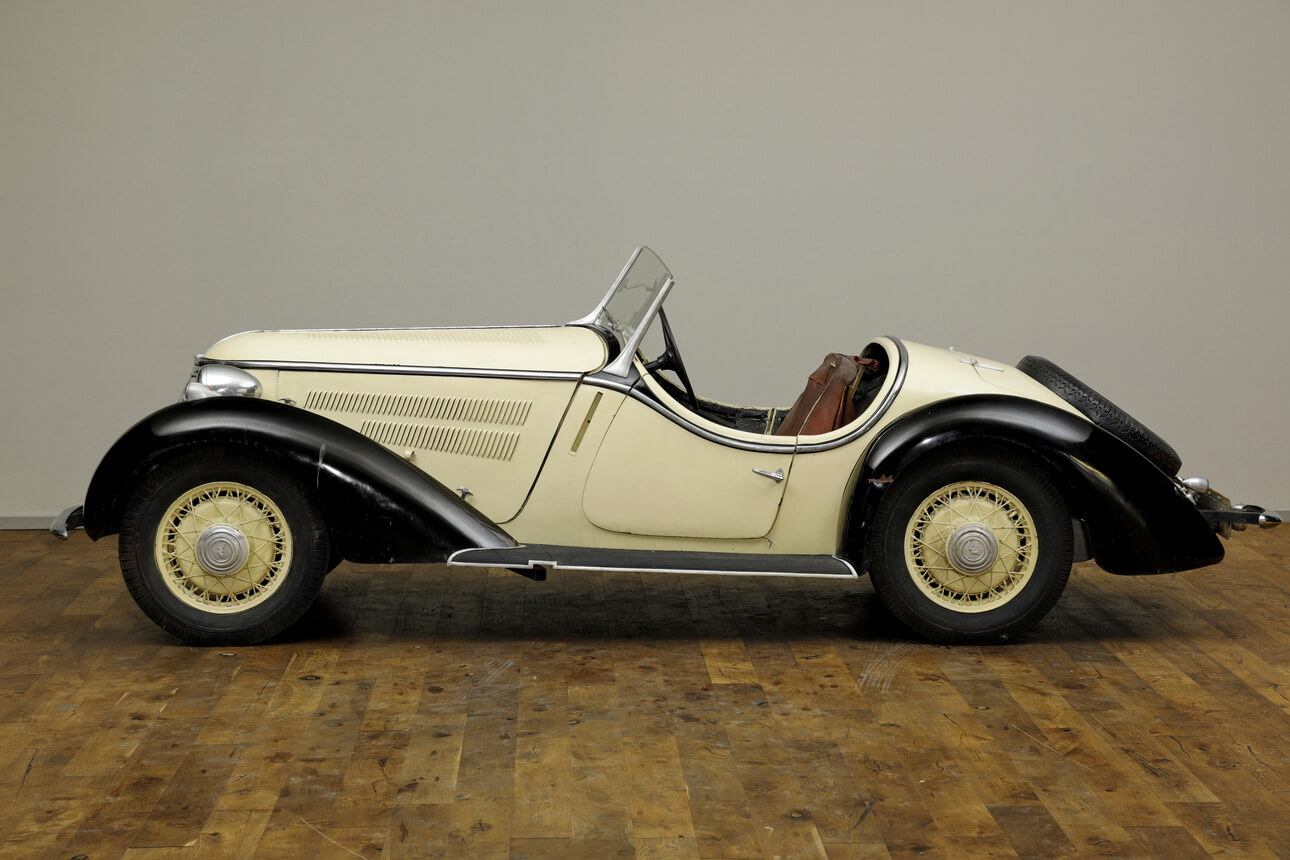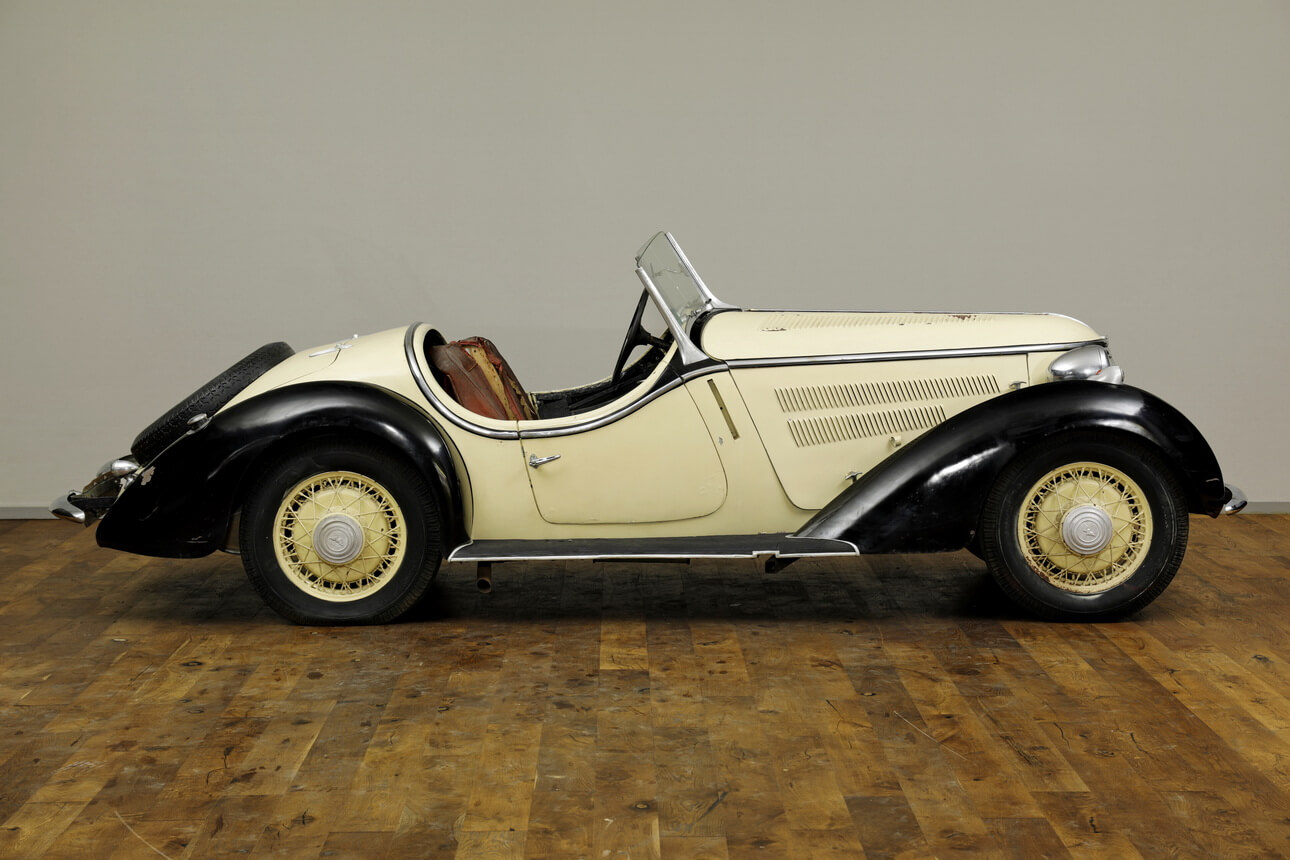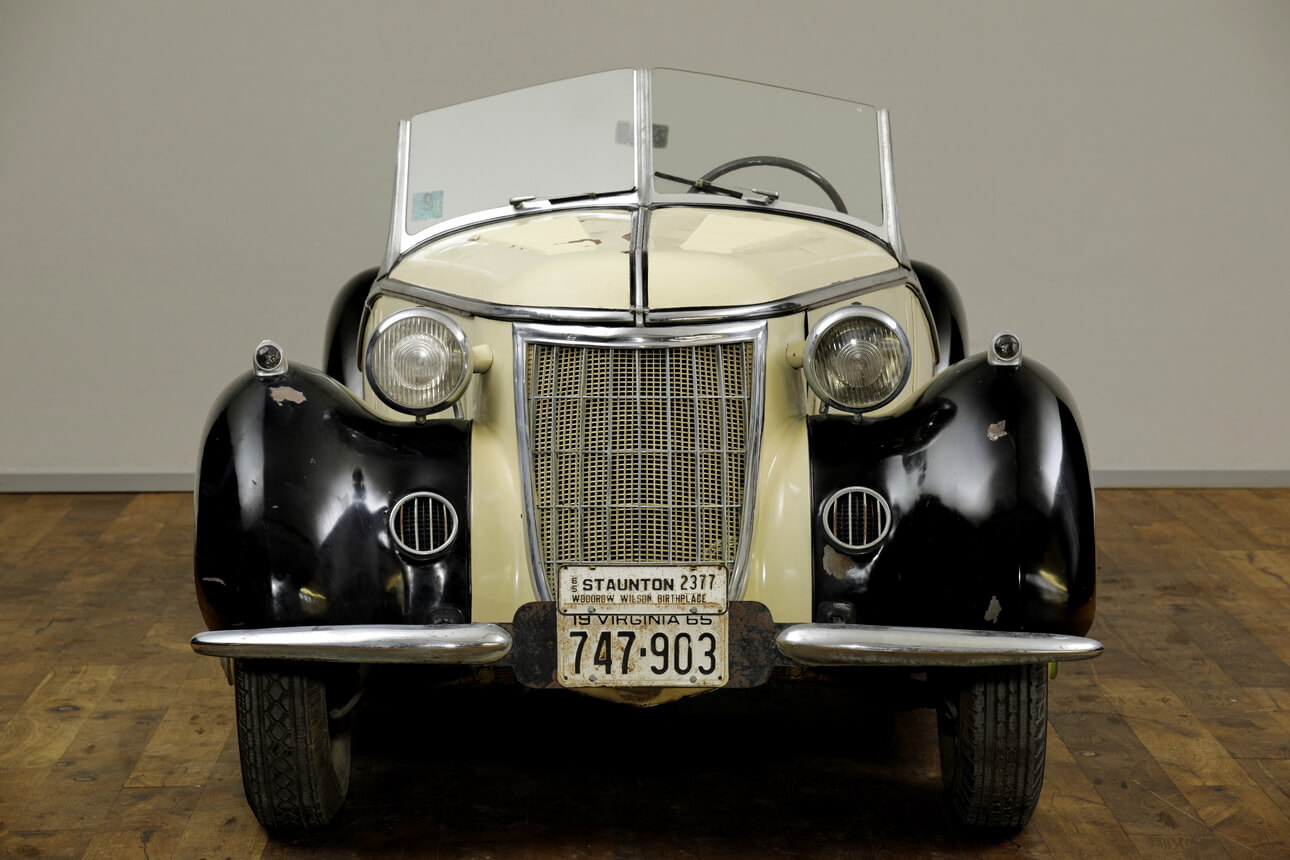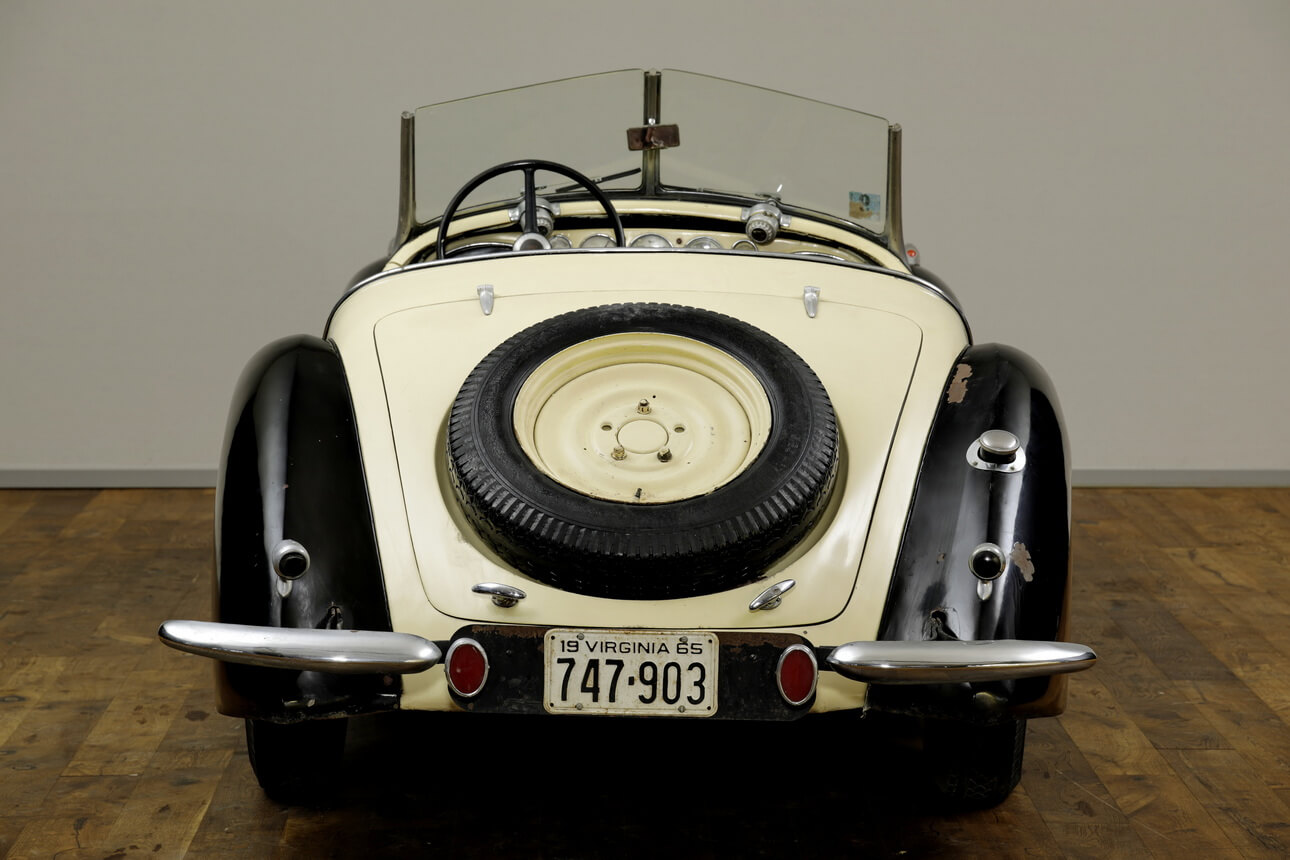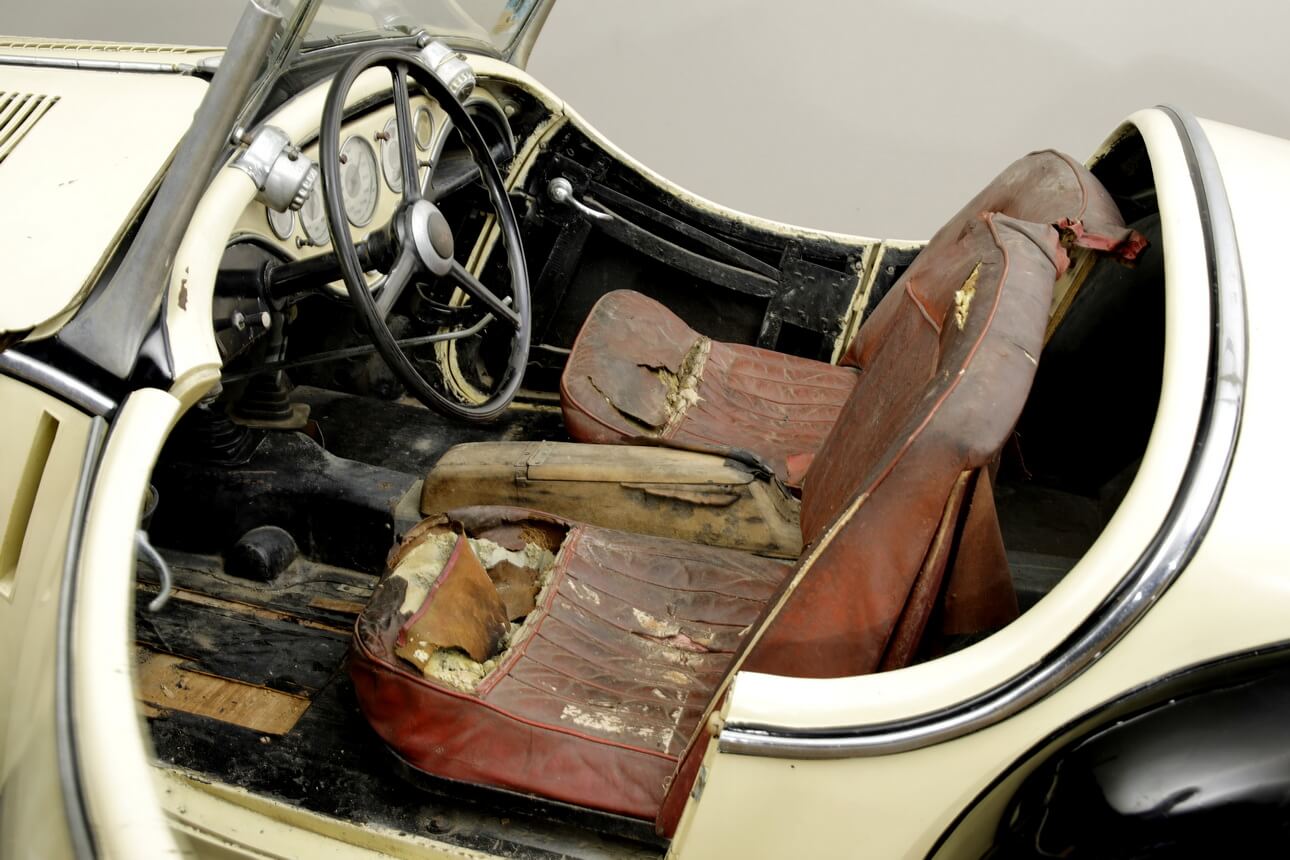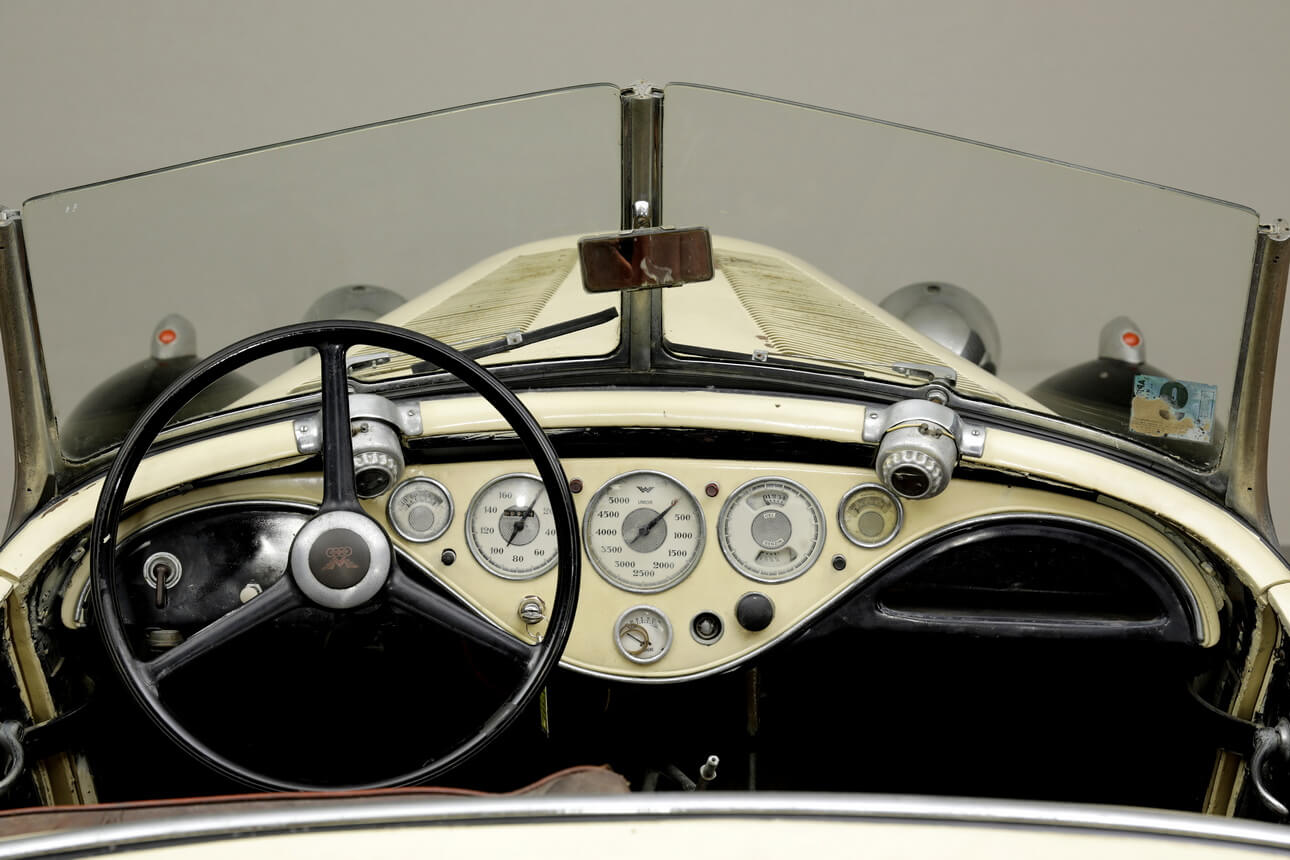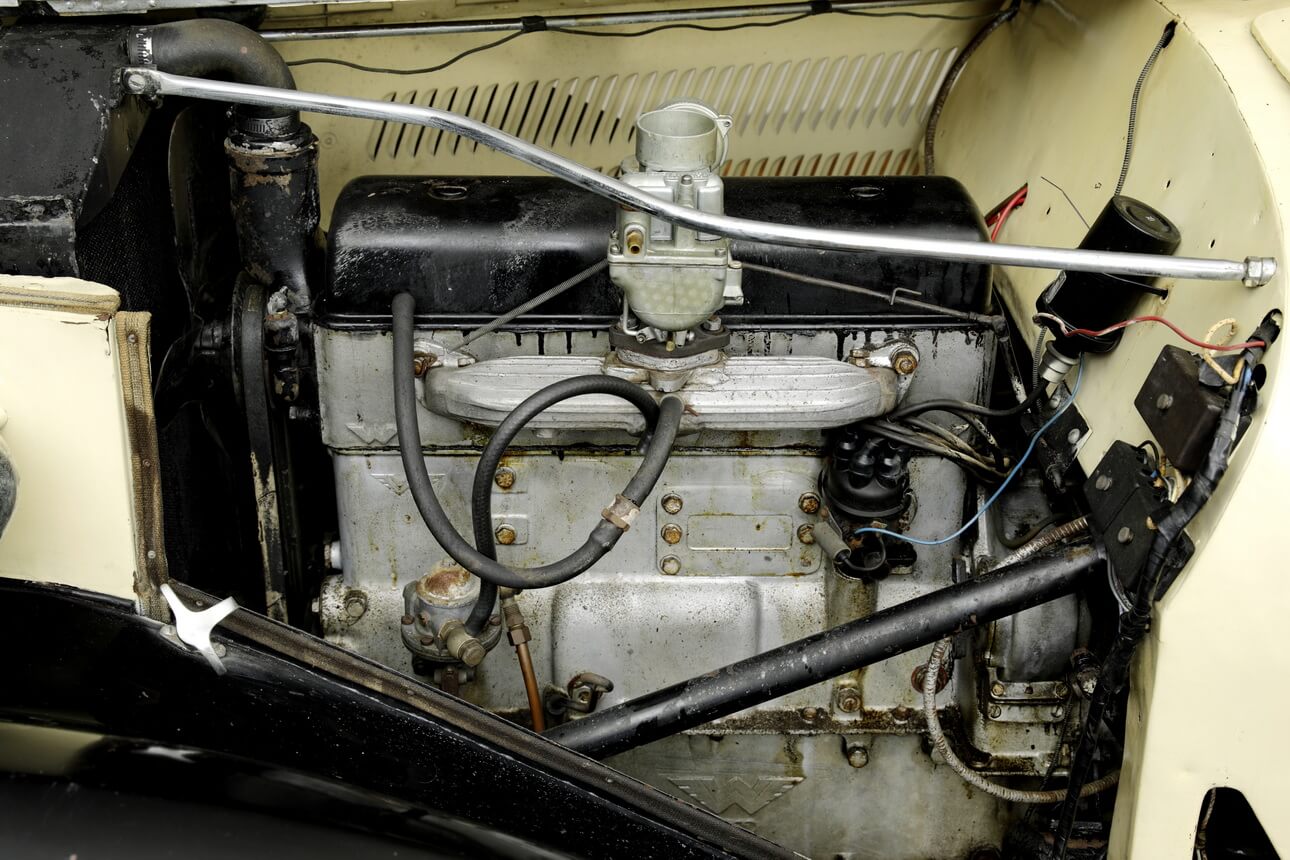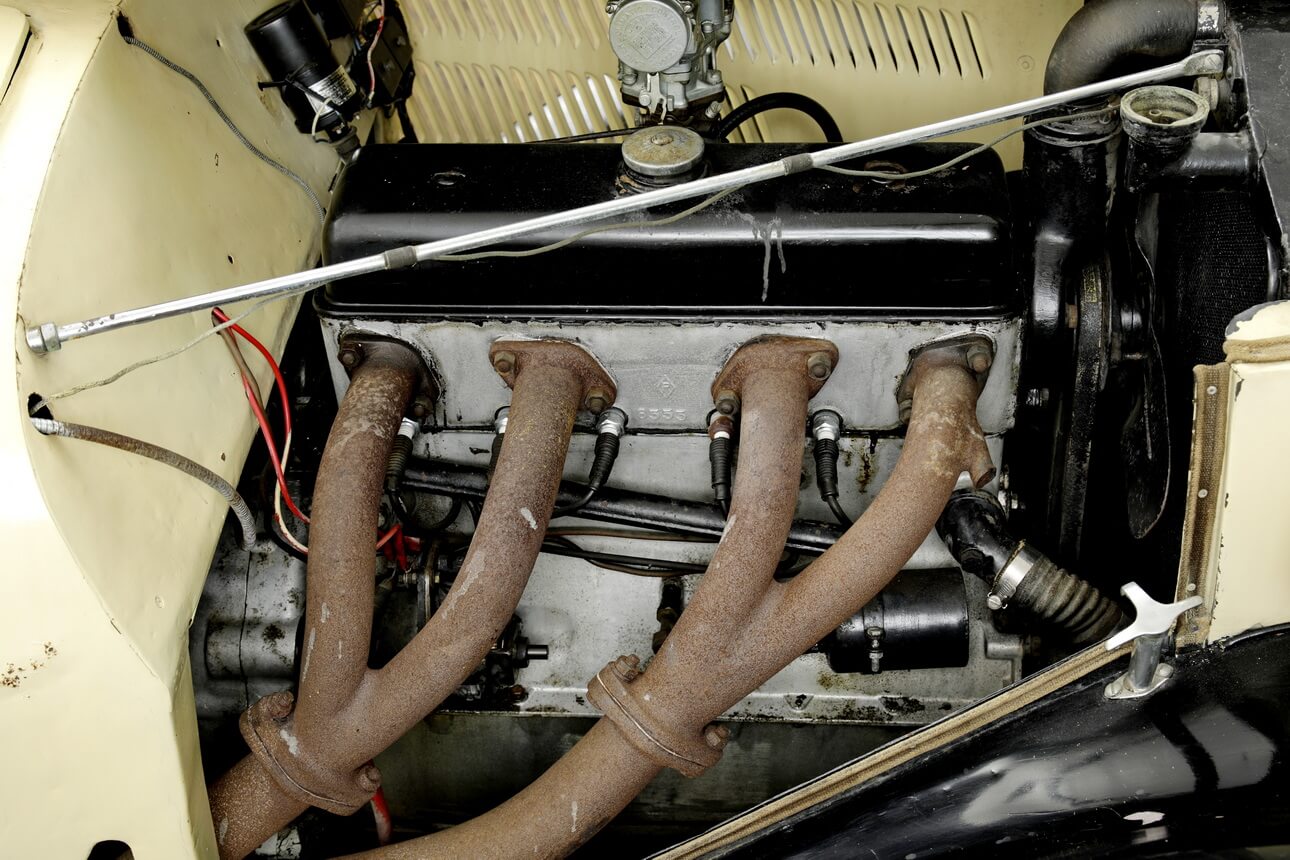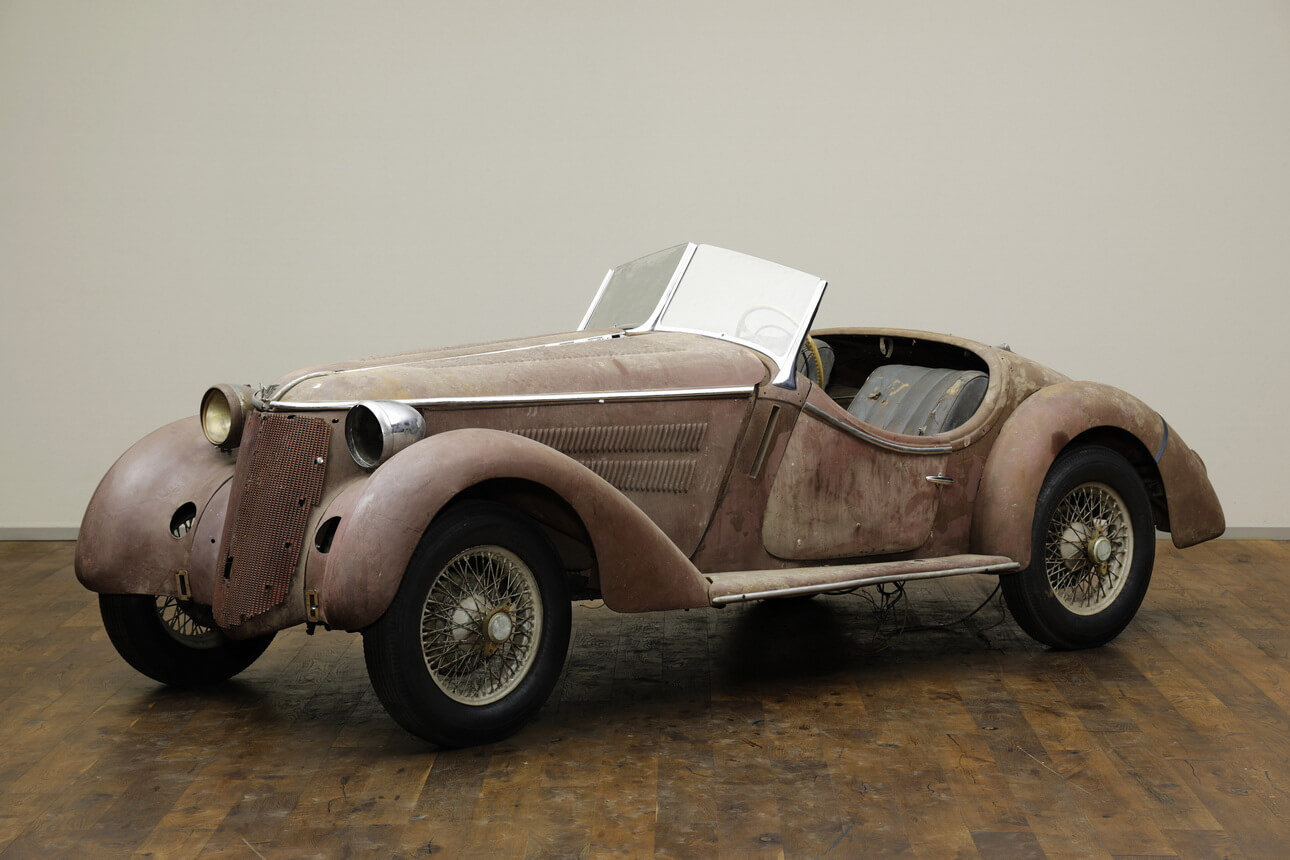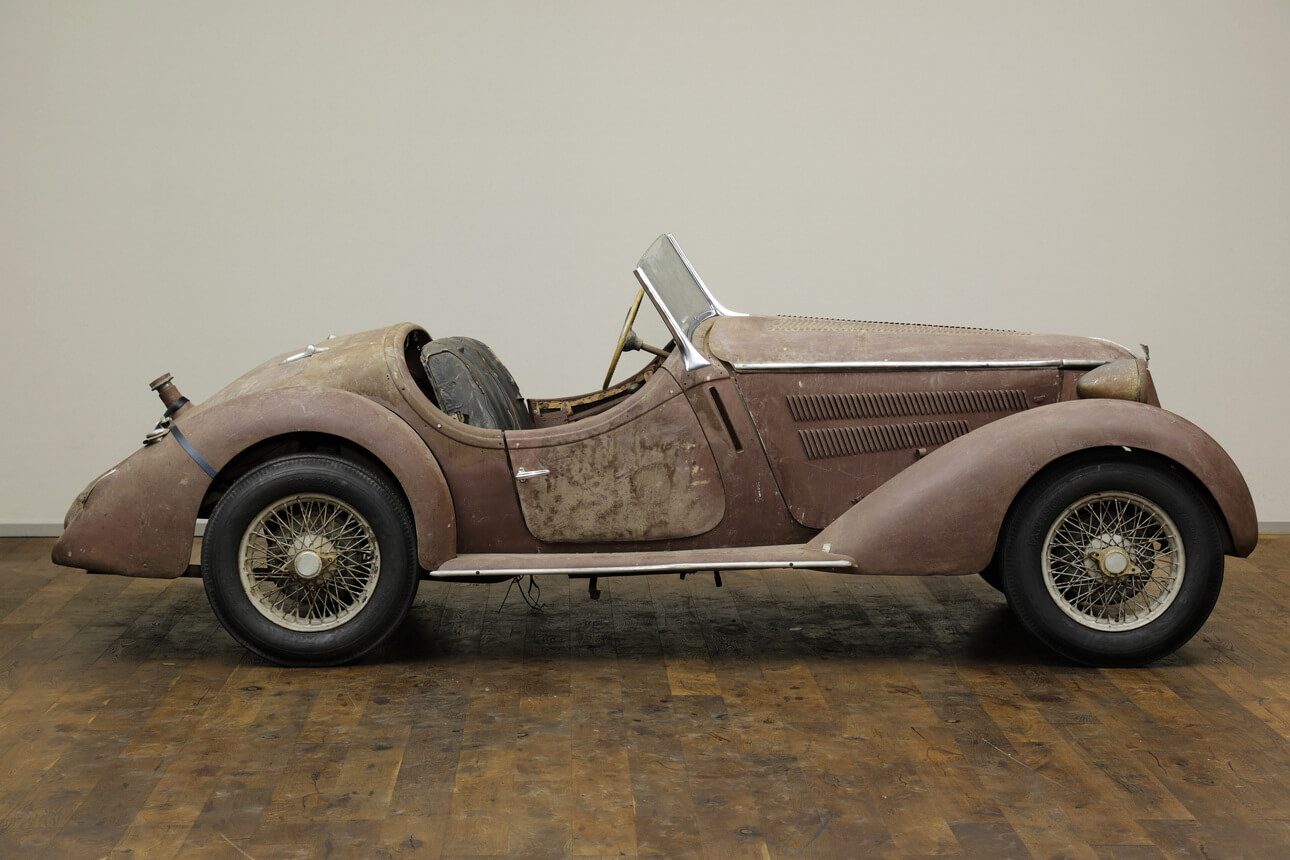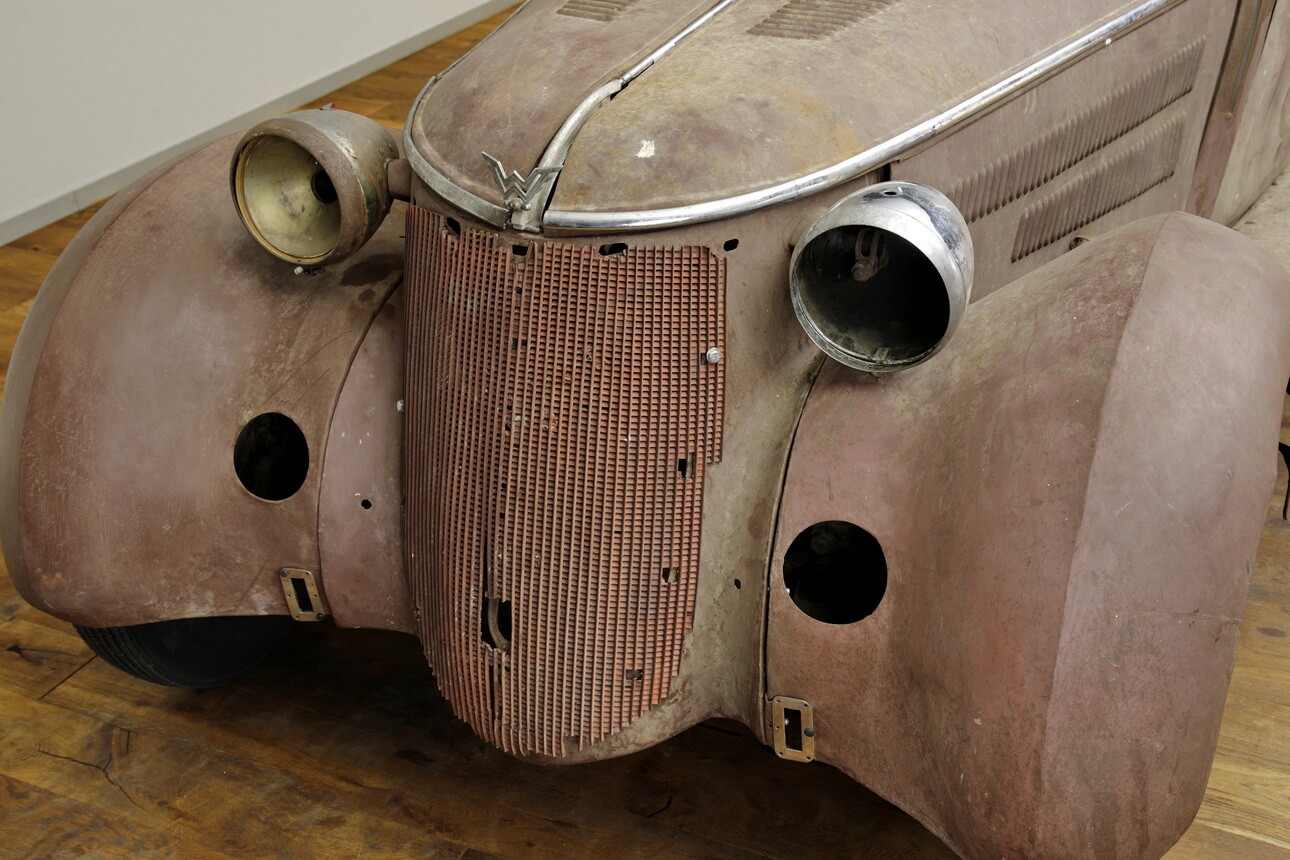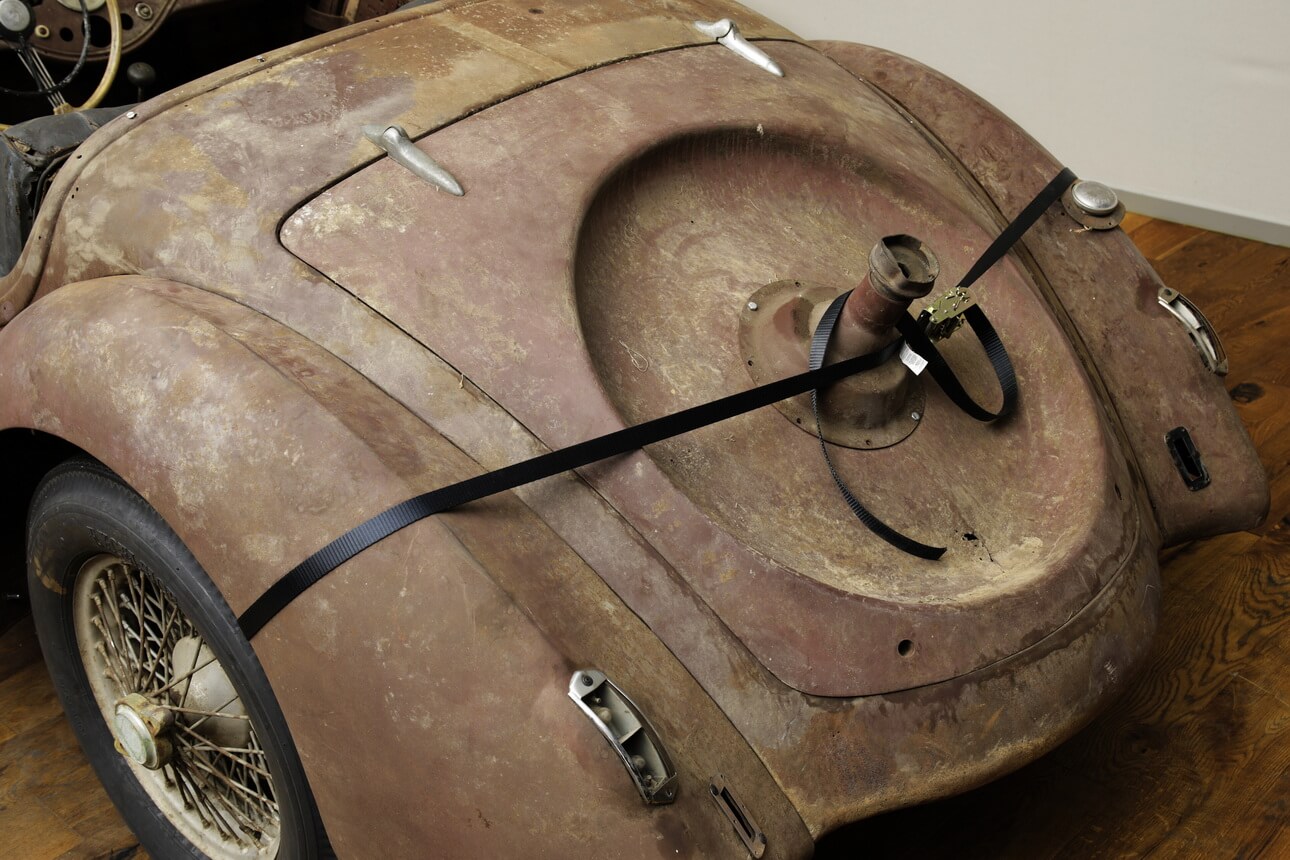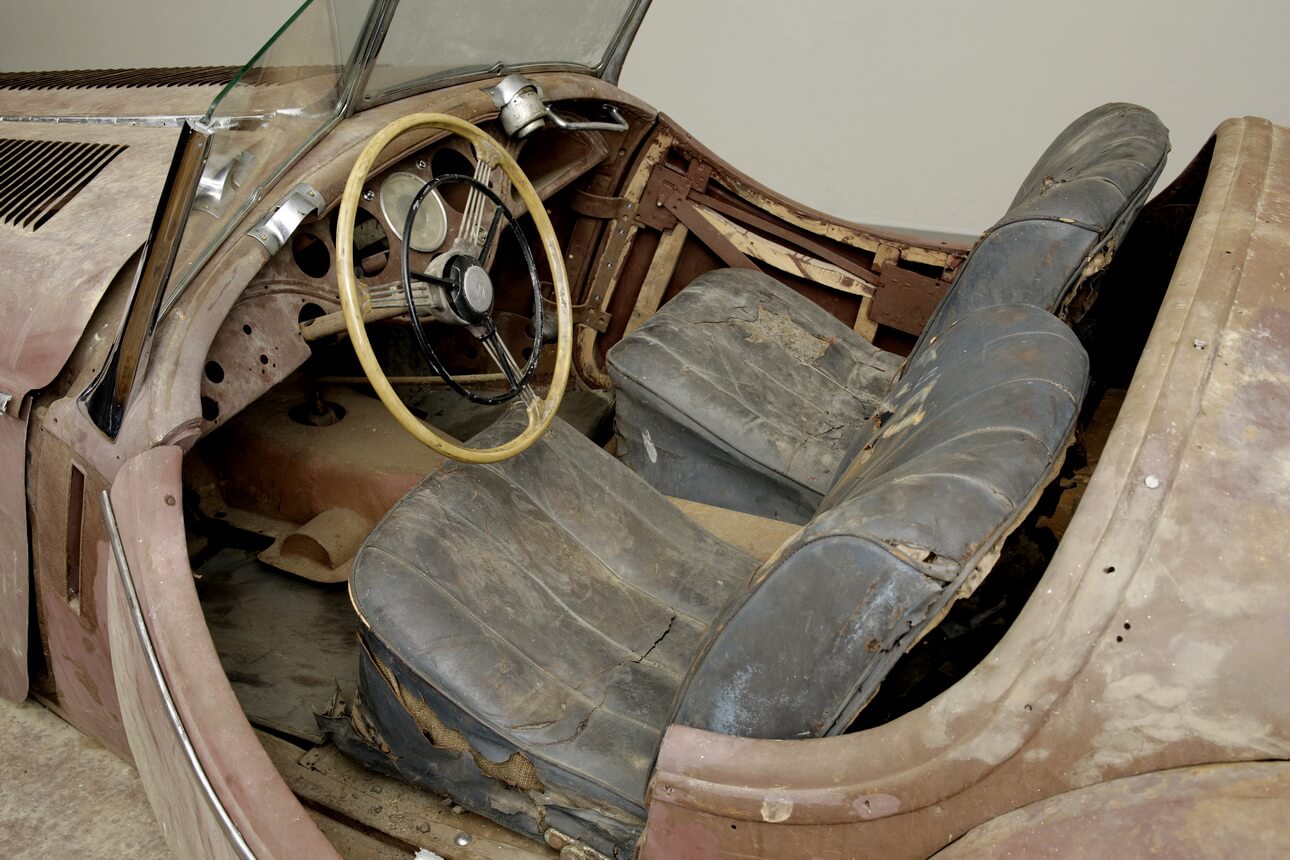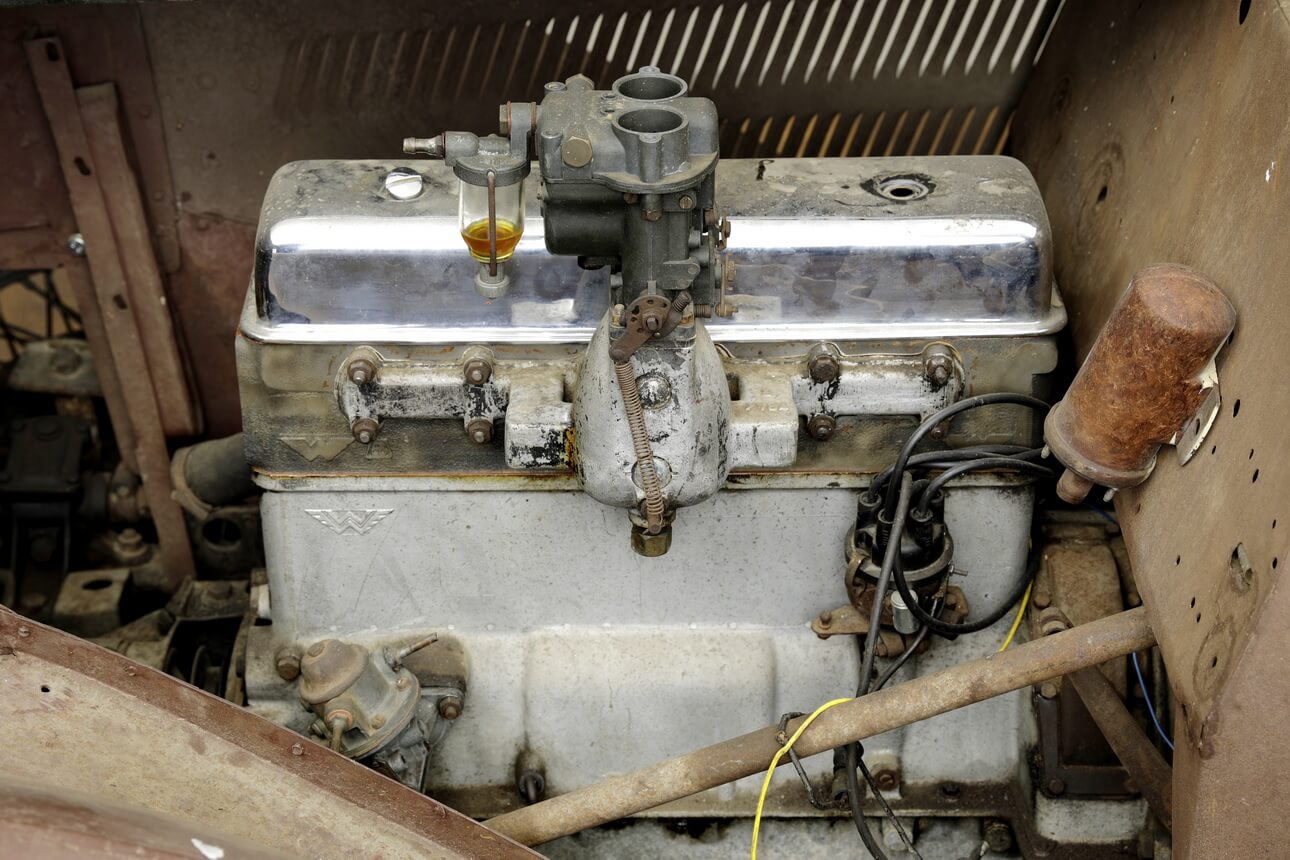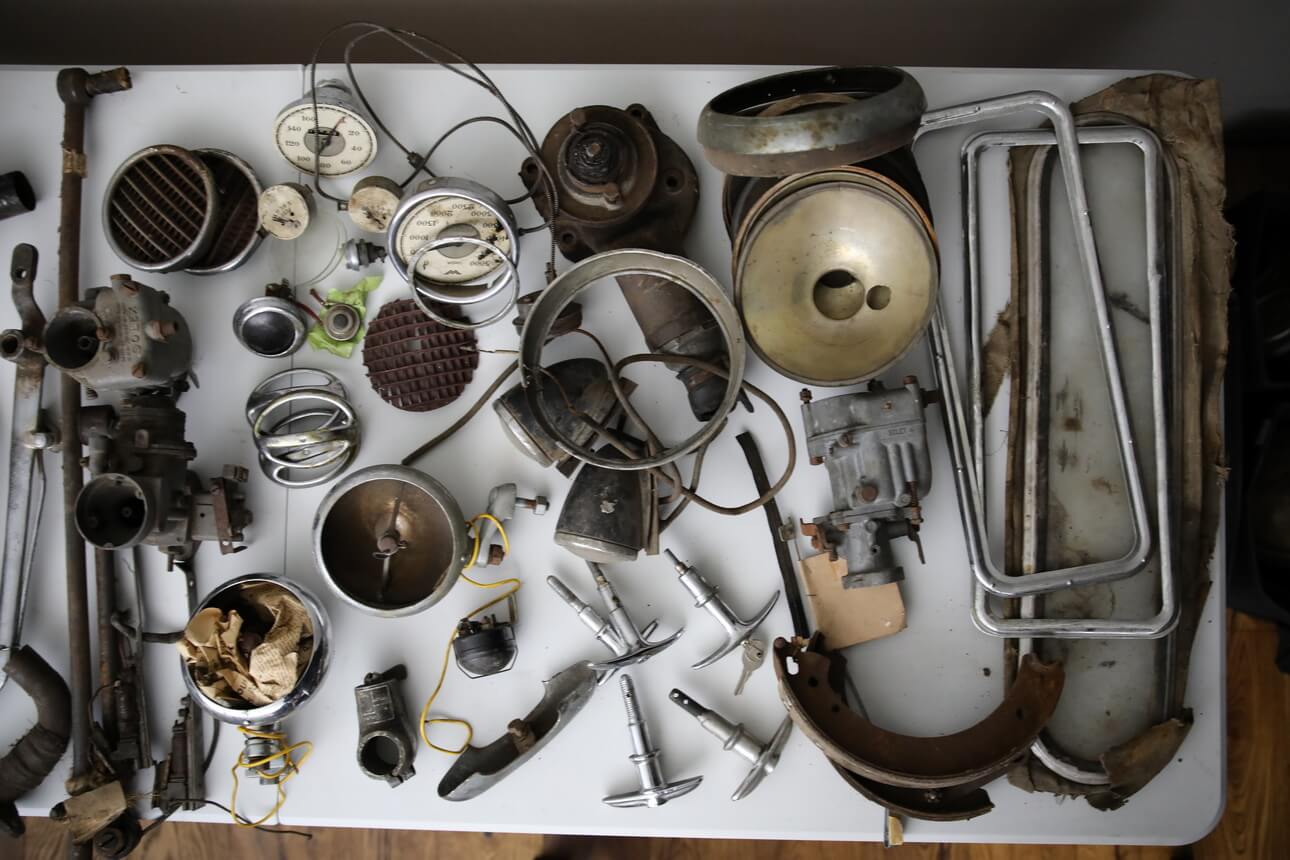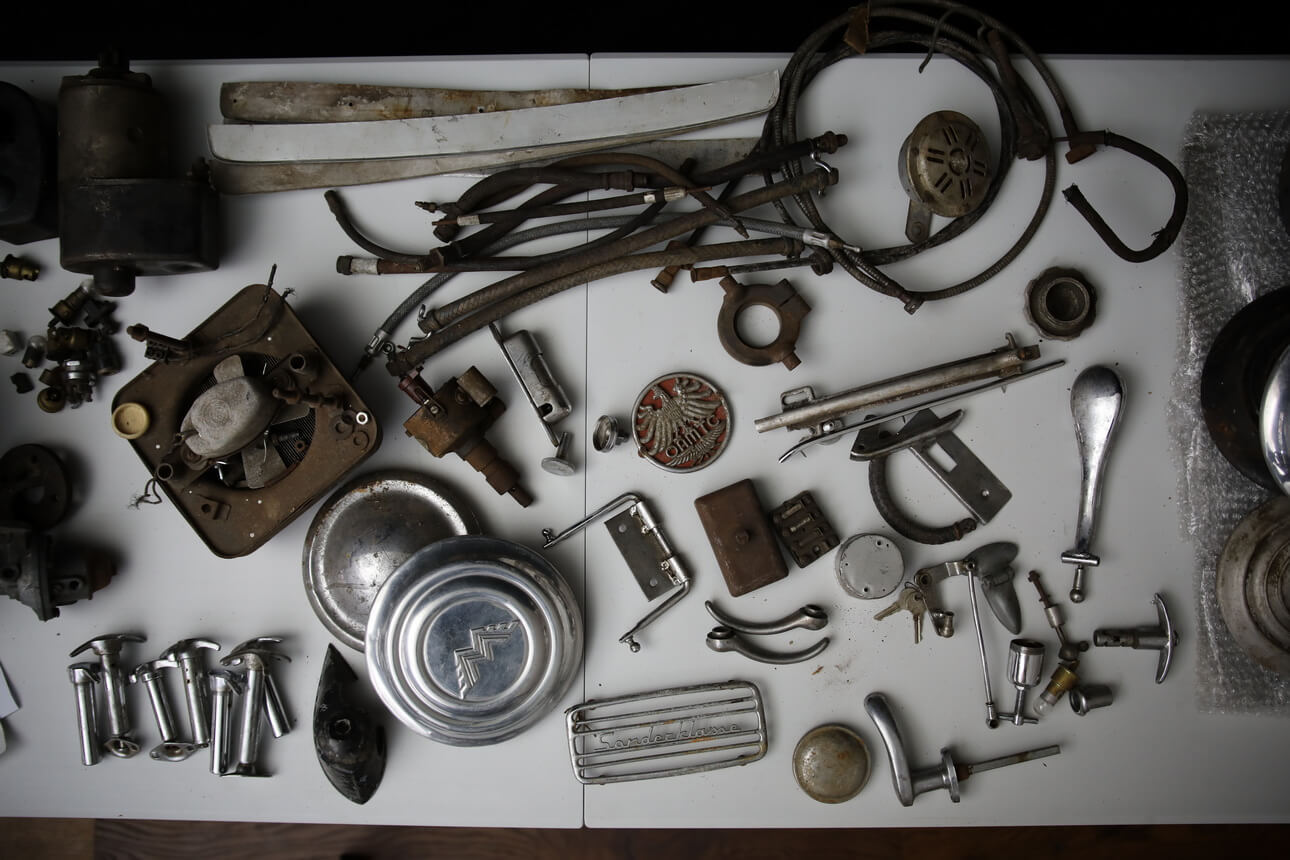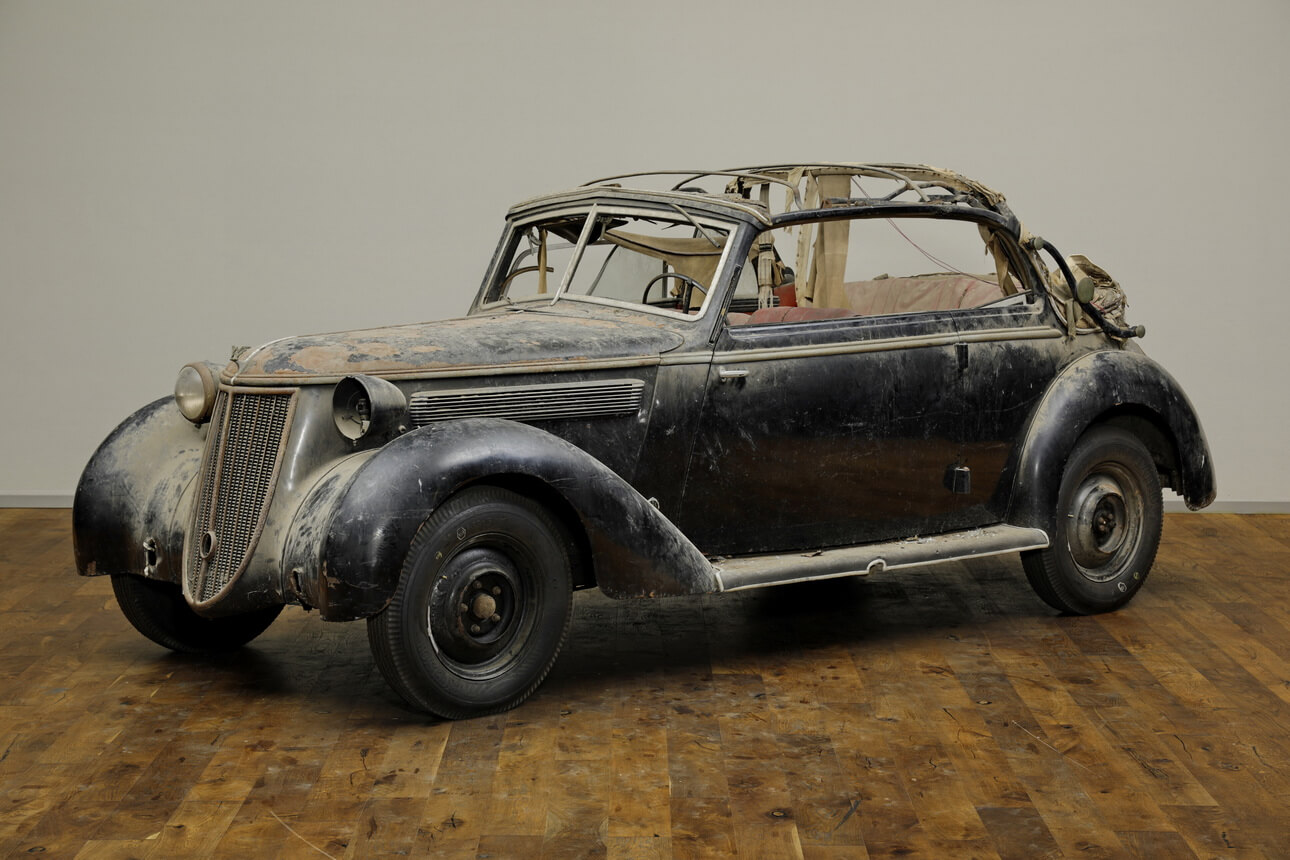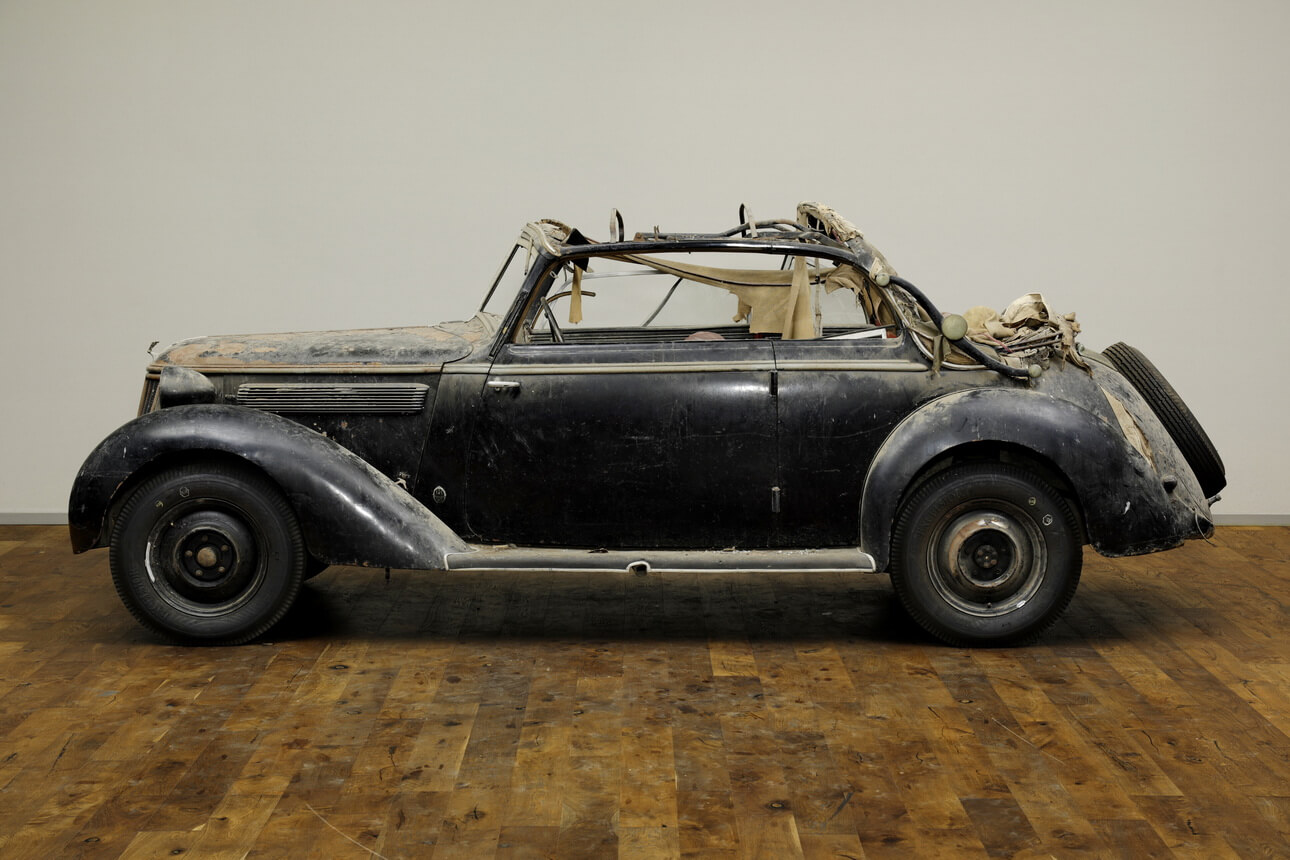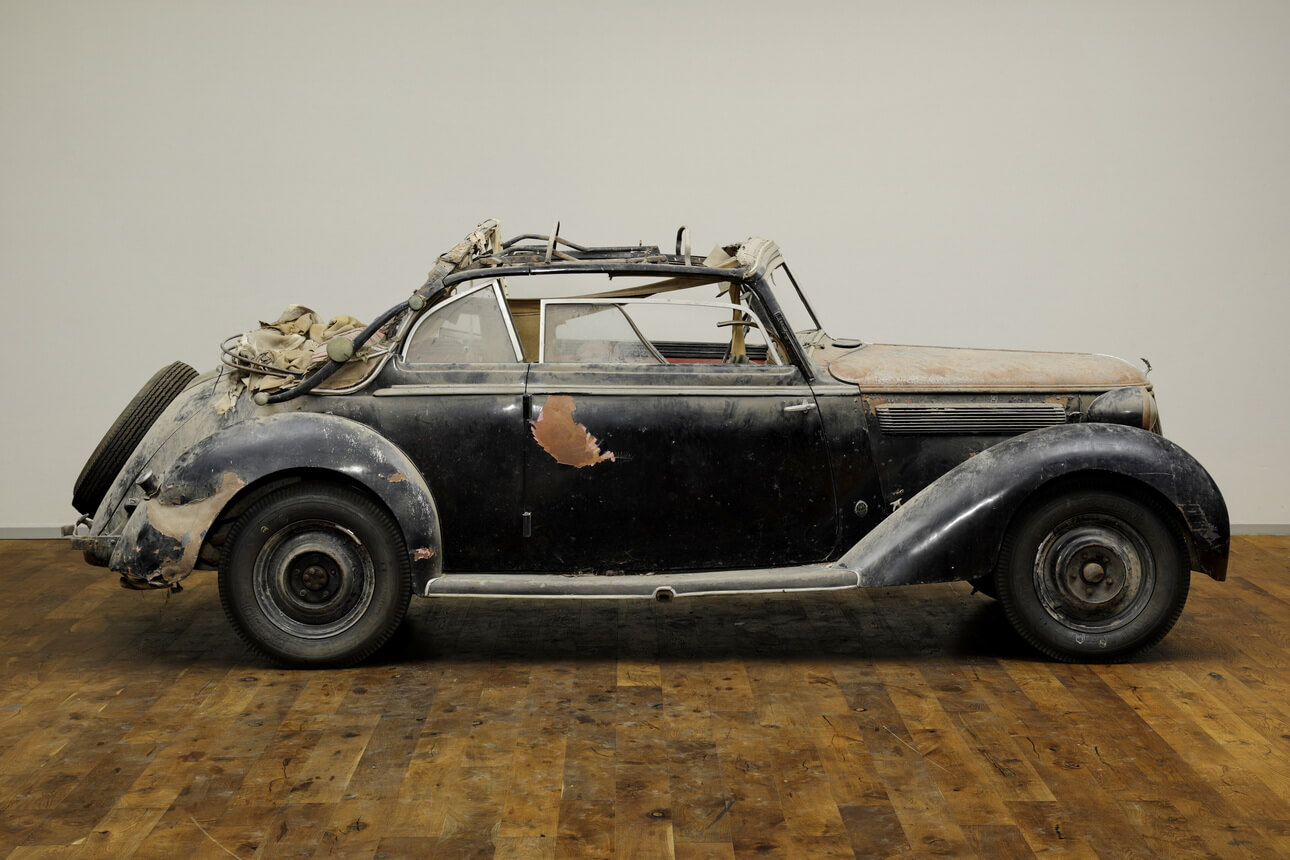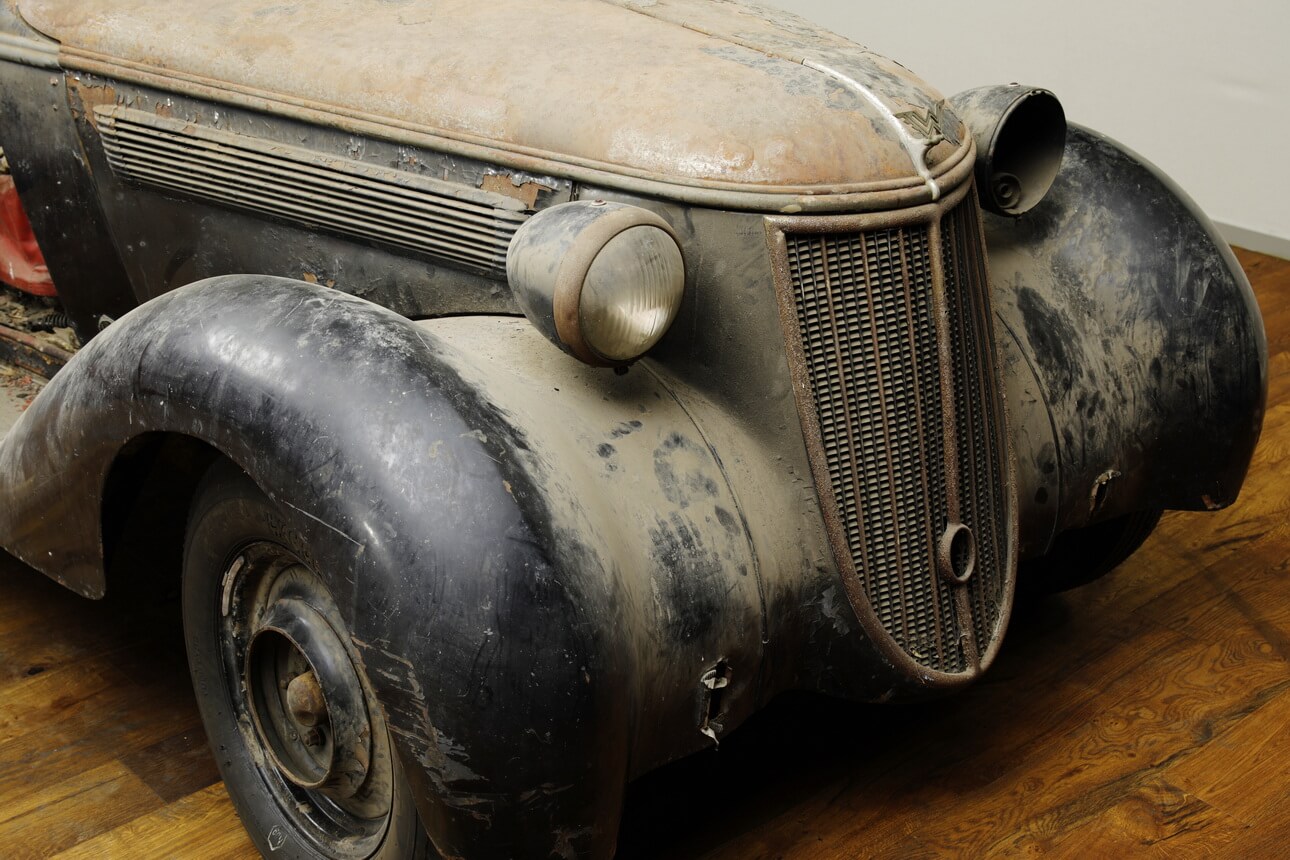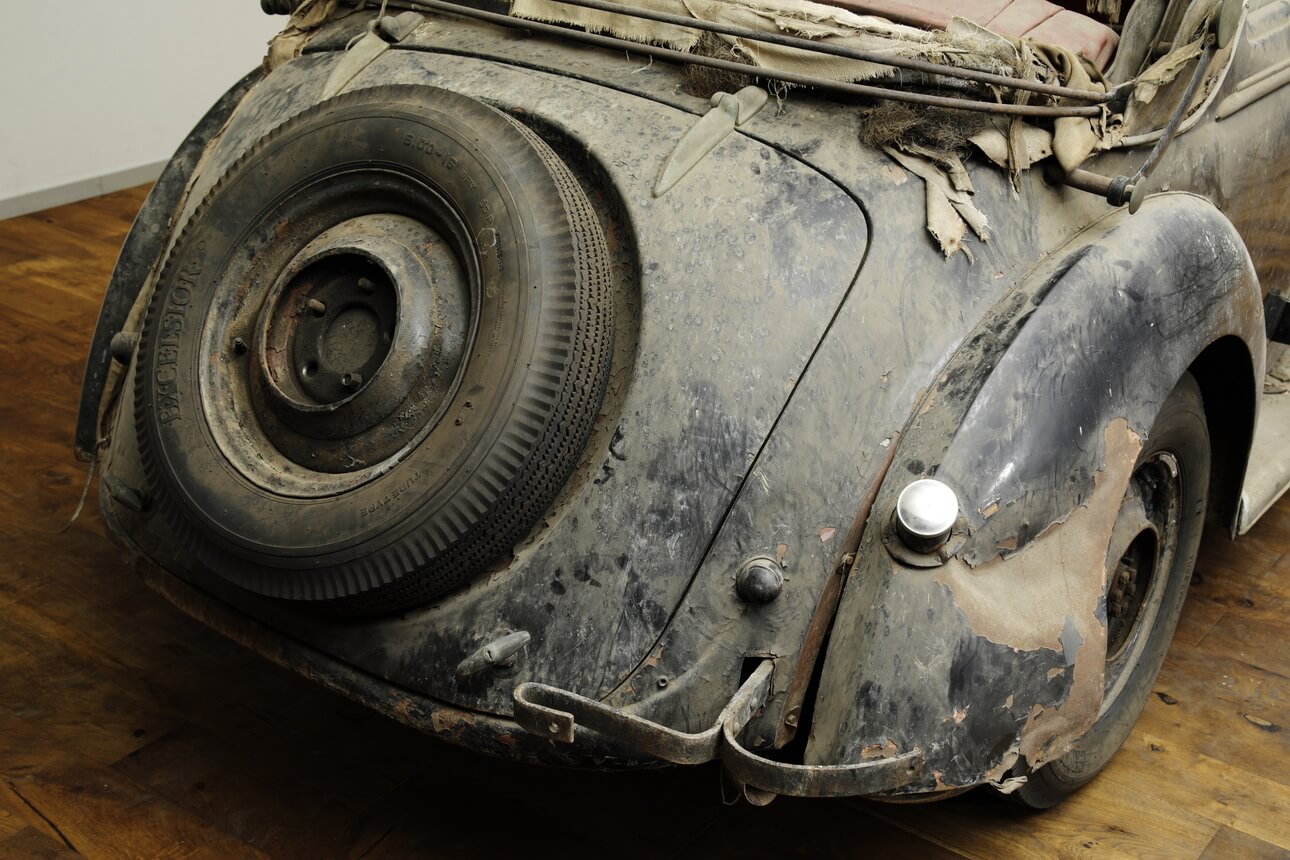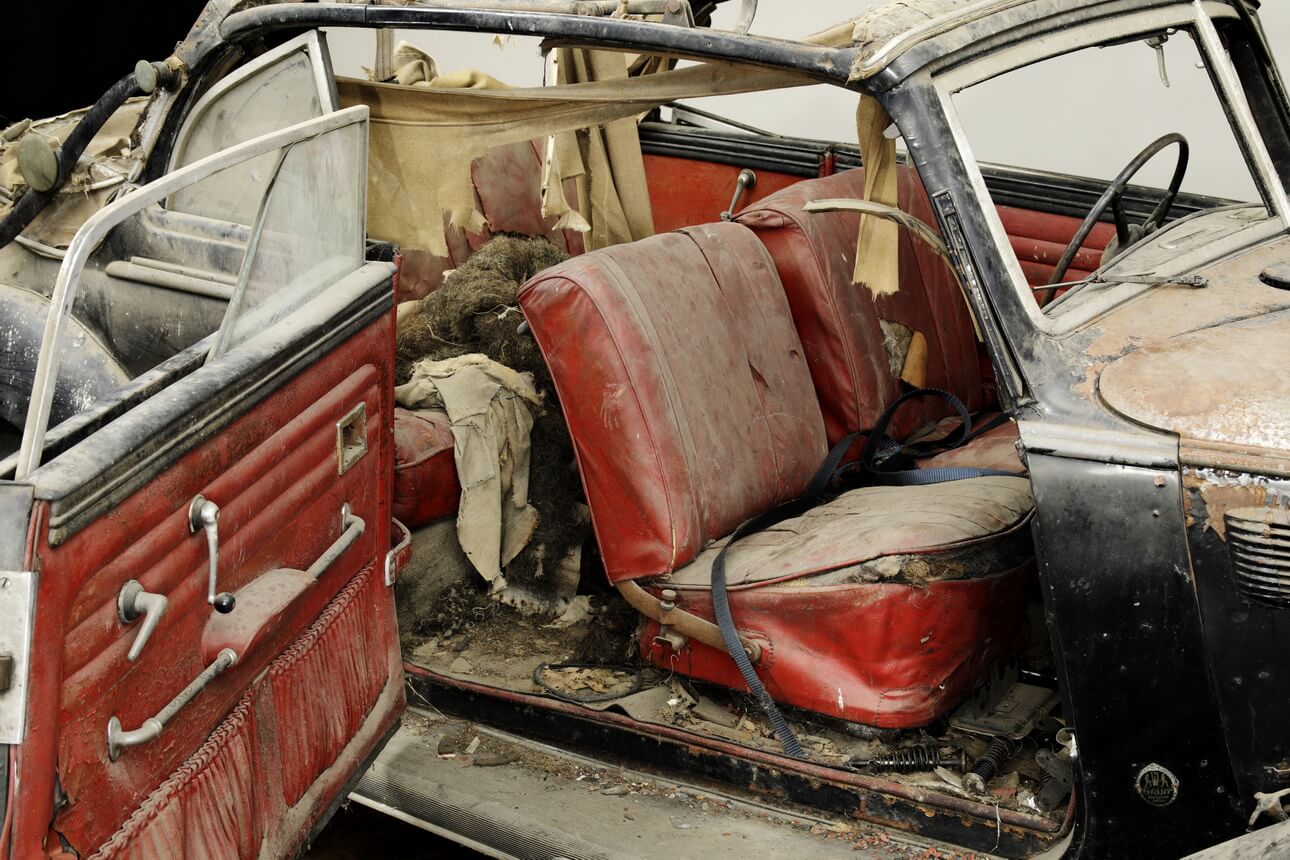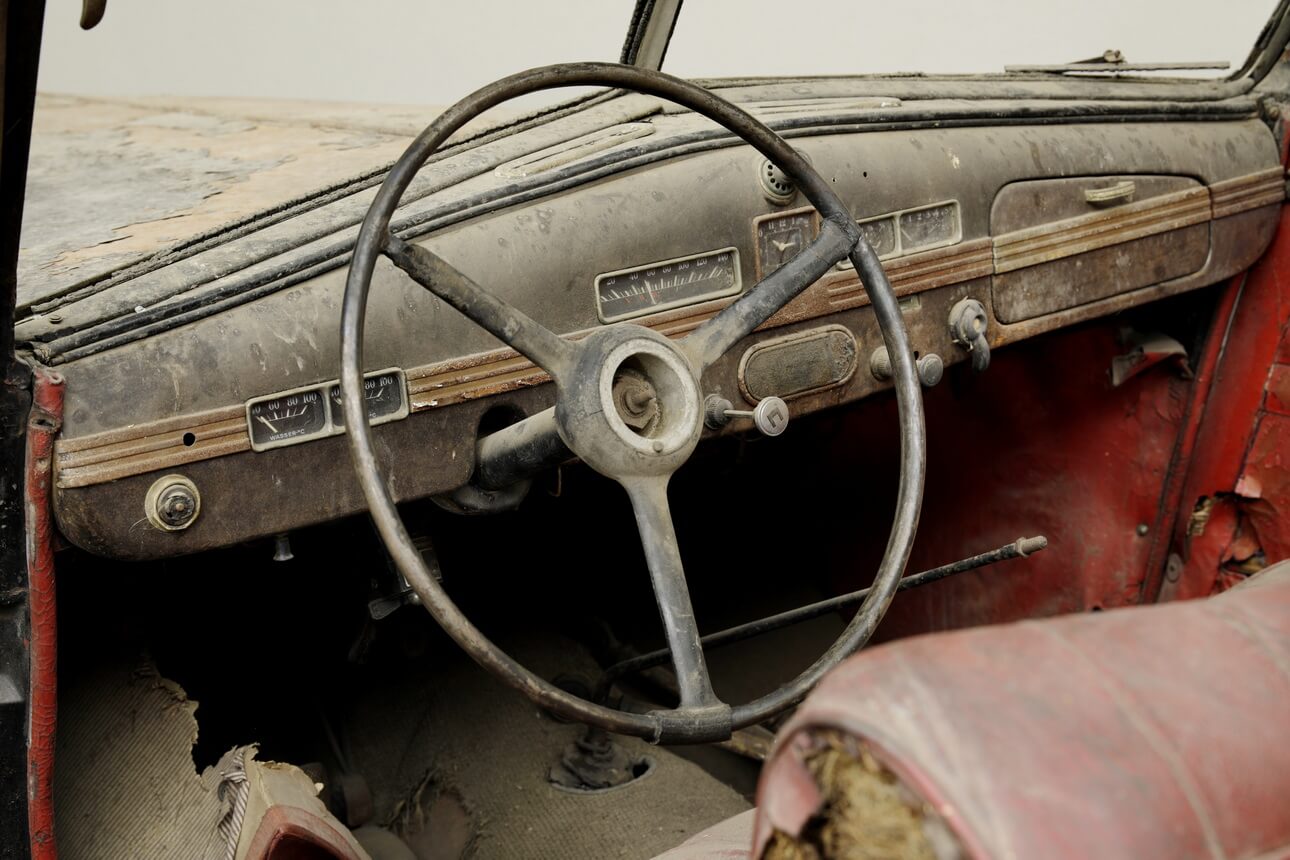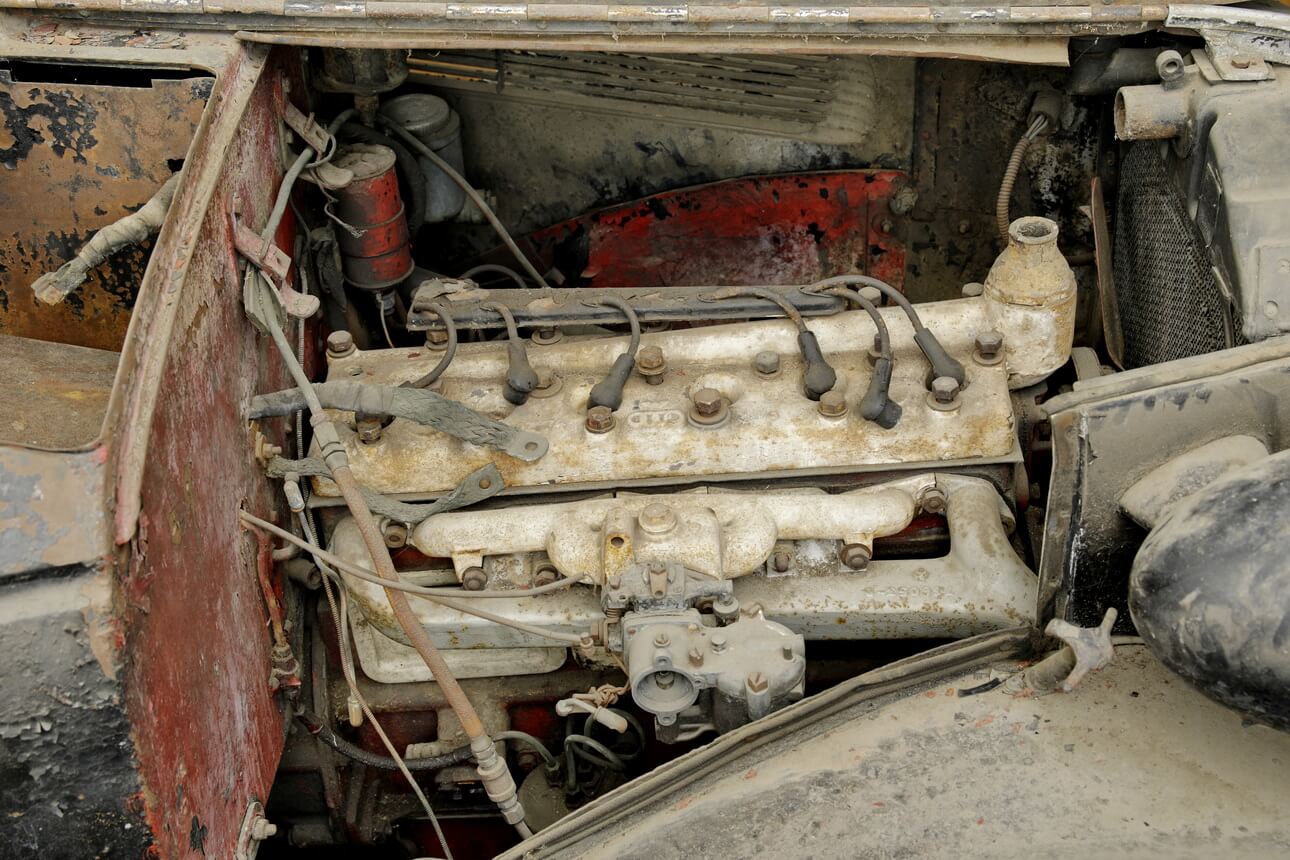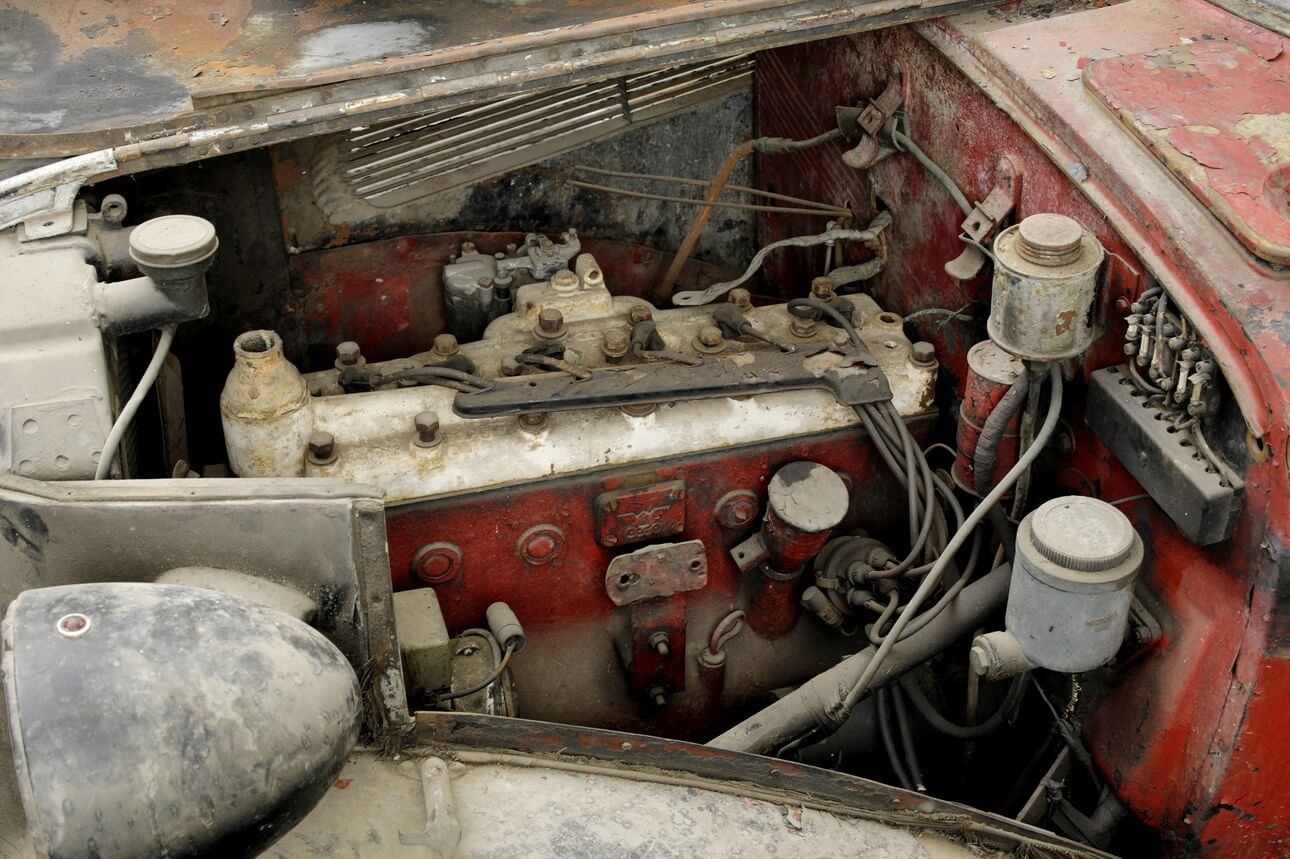Wanderer W25K, W25 & W23 Gläser Cabriolet
Highlights
Model History Wanderer W25
In the spring of 1936, Auto Union presented the Wanderer W 25 K Sport Two-Seater with supercharger at the International Automobile and Motorbike Exhibition in Berlin – a powerful, compact and very attractive roadster that was also intended to enhance Auto Union's sporty image in the production models.
The 2-litre six-cylinder in-line engine was a construction by Ferdinand Porsche. The engine was combined with a four-speed manual gearbox and drove the rear wheels. In the standard version, the engine offered 40 hp. Its power was then increased to 85 hp by a volumetric Roots compressor, a modified cylinder head, two Solex carburettors and an adapted sports exhaust.
The W 25 K was the only Wanderer model to be fitted with an engine casing made of light metal. Thus, the engine produced 85 hp and allowed a top speed of 150 km/h and made it a direct competitor to the BMW 328. Equipped with a proven floating axle, the sophisticated chassis provided excellent road holding. Despite initial considerations, the car was not used in motorsport events by the factory.
In 1938, production of the W 25 ended after a total of 258 vehicles, the last 37 of which were delivered without a supercharger. Today, collectors worldwide are delighted by the interesting technology, the timelessly beautiful design and the sporty handling of the compact roadster.
Model History Wanderer W25
In the spring of 1936, Auto Union presented the Wanderer W 25 K Sport Two-Seater with supercharger at the International Automobile and Motorbike Exhibition in Berlin – a powerful, compact and very attractive roadster that was also intended to enhance Auto Union's sporty image in the production models.
The 2-litre six-cylinder in-line engine was a construction by Ferdinand Porsche. The engine was combined with a four-speed manual gearbox and drove the rear wheels. In the standard version, the engine offered 40 hp. Its power was then increased to 85 hp by a volumetric Roots compressor, a modified cylinder head, two Solex carburettors and an adapted sports exhaust.
The W 25 K was the only Wanderer model to be fitted with an engine casing made of light metal. Thus, the engine produced 85 hp and allowed a top speed of 150 km/h and made it a direct competitor to the BMW 328. Equipped with a proven floating axle, the sophisticated chassis provided excellent road holding. Despite initial considerations, the car was not used in motorsport events by the factory.
In 1938, production of the W 25 ended after a total of 258 vehicles, the last 37 of which were delivered without a supercharger. Today, collectors worldwide are delighted by the interesting technology, the timelessly beautiful design and the sporty handling of the compact roadster.

